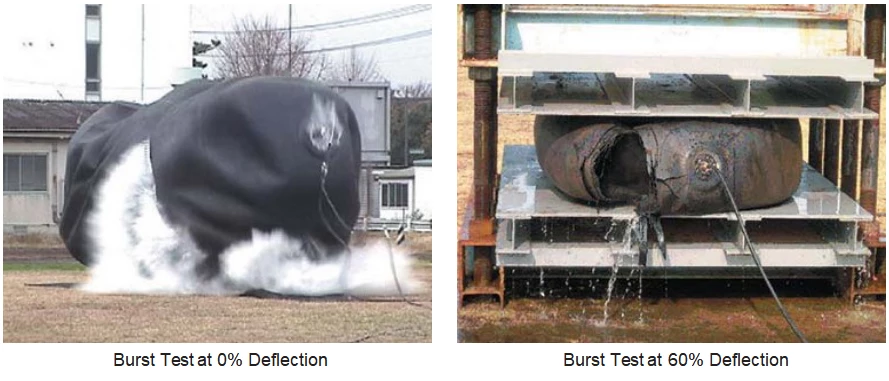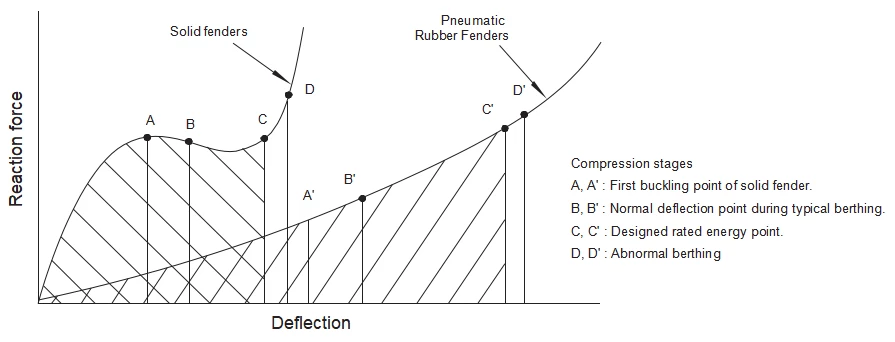1. Safety and Reliability
Yokohama Type Pneumatic Rubber Fenders are constructed of several layers of strong tire-cord, and are thus resistant to pressure and cutting. The safety factor adopted in the design of this fender is based on accepted theory and has been proven by extensive experimentation. large-size fenders are equipped with a safety valve to release the inside air in the event of accidental over-pressure.

2.No Deterioration or Variation in Performance
Jerryborg Marine Pneumatic Rubber Fenders utilize the compressive elasticity of air, therefore performance deterioration due to fatigue is absent. our Pneumatic Rubber Fenders also fully comply with the durability test required by ISO17357-1: 2014. Any reduction of the guaranteed energy absorption (GEA) is not accepted.
3. Advantages at Inclined Berthing
Yokohama Pneumatic Rubber Fenders, energy absorption does not decrease at inclined compression up to 15 degrees.

Distribution of load is also comparatively even because of the molecular freedom of air and high flexibility of the multi-layered cord-reinforced rubber membrane.

4. Most Cost Competitive System
The utilization of the compressive elasticity of air, unlike other fenders which need protector panels, provides completely uniform surface pressure on contact, making Pneumatic Rubber Fenders ideal. The surface pressure of the Yokohama Pneumatic Rubber Fenders is equal to the internal air pressure.
5. Soft Reaction Force for Ship and Jetty Structure
The reaction force of Pneumatic Rubber Fenders does not increase sharply, even under excess load conditions. Therefore, the Pneumatic Rubber Fenders perform well in such cases, and protect ships and mooring facilities. In contrast, the reaction force of solid rubber fenders, including buckling-type fenders, increases sharply under excess load conditions.

it can be seen that the Pneumatic Rubber Fenders are ideal as fender system because of gentle treatment of ships in below table.
| Compression Stage | Comparison |
|---|---|
| A, A’ : Buckling point of solid fender | Pneumatic fender has lower reaction force and exerts lower hull pressure compared to the solid rubber fender |
| B, B’ : Normal deflection point | Pneumatic fender has lower reaction force and exerts lower hull pressure compared to the solid rubber fender |
| C, C’ : Designed rated energy point | Pneumatic fender has slightly higher reaction force only at this point |
| D, D’ : Abnormal berthing point | Pneumatic fender has lower reaction force and exerts lower hull pressure compared to the solid rubber fender |
Contact us now !
Get a quick quote and learn more about us.

+86 18765259568

No.1, Xishanqian Industrial Park, Jimo District 266200, Qingdao City, China.

